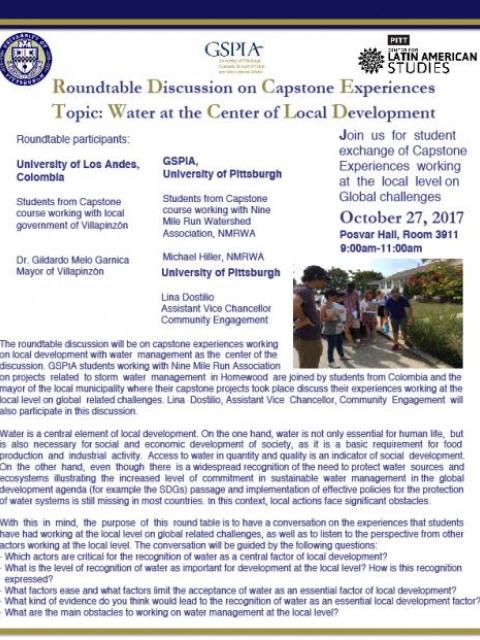October 27, 2017
The roundtable discussion will be on capstone experiences working on local development with water management as the center of the discussion. GSPIA students working with Nine Mile Run Association on projects related to storm water management in Homewood are joined by students from Colombia and the mayor of the local municipality where their capstone projects took place discuss their experiences working at the local level on global related challenges. Lina Dostilio, Assistant Vice Chancellor, Community Engagement will
also participate in this discussion. Water is a central element of local development. On the one hand, water is not only essential for human life, but is also necessary for social and economic development of society, as it is a basic requirement for food production and industrial activity. Access to water in quantity and quality is an indicator of social development.
On the other hand, even though there is a widespread recognition of the need to protect water sources and ecosystems illustrating the increased level of commitment in sustainable water management in the global development agenda (for example the SDGs) passage and implementation of effective policies for the protection of water systems is still missing in most countries. In this context, local actions face significant obstacles. With this in mind, the purpose of this round table is to have a conversation on the experiences that students
have had working at the local level on global related challenges, as well as to listen to the perspective from other actors working at the local level. The conversation will be guided by the following questions:
· Which actors are critical for the recognition of water as a central factor of local development?
· What is the level of recognition of water as important for development at the local level? How is this recognition
expressed?
· What factors ease and what factors limit the acceptance of water as an essential factor of local development?
· What kind of evidence do you think would lead to the recognition of water as an essential local development factor?
· What are the main obstacles to working on water management at the local level?


